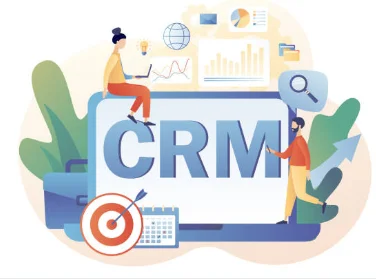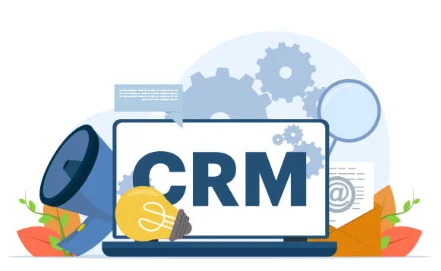CRM Software Comparison: Salesforce vs. HubSpot vs. Zoho vs. Microsoft Dynamics
In today’s fast-paced business environment, a reliable Customer Relationship Management (CRM) system is essential for managing interactions with customers and prospects. With several options available, choosing the right CRM can be a daunting task. This article aims to provide a comprehensive comparison of four leading CRM software solutions: Salesforce, HubSpot, Zoho, and Microsoft Dynamics.
Understanding CRM Software
What is CRM Software?
CRM software is designed to help businesses manage various aspects of customer relationships. This includes tracking customer interactions, managing sales leads, implementing marketing campaigns, and analyzing customer data. By centralizing this information, CRM systems contribute to better decision-making, increased customer satisfaction, and improved sales performance.
Why Use CRM Software?
Utilizing CRM software enables businesses to streamline processes, maintain organization, and enhance communication within sales and marketing teams. Key benefits include:
- Improved sales forecasting and reporting
- Enhanced customer service and support
- Better collaboration among team members
- Increased customer retention and loyalty
Overview of the Leading CRM Solutions
1. Salesforce
Features of Salesforce
Salesforce is one of the most recognized CRM platforms globally, offering a robust set of features, including:
- Sales Cloud: A comprehensive sales automation tool that allows users to manage their sales pipeline efficiently.
- Marketing Cloud: Offers advanced marketing automation capabilities for executing targeted campaigns.
- Service Cloud: Enhances customer service interactions with tools like case management and customer feedback.
- AppExchange: A marketplace for third-party integrations and applications that enhance Salesforce’s functionality.
2. HubSpot
Features of HubSpot
HubSpot is known for its user-friendly interface and inbound marketing features. Key aspects include:
- Free CRM: HubSpot offers a free CRM solution that includes basic functionalities suitable for startups and small businesses.
- Marketing Hub: Comprehensive marketing tools for content management and lead nurturing.
- Sales Hub: Automates sales processes and helps teams manage customer data seamlessly.
- Service Hub: Provides tools for managing support tickets and customer communications.
3. Zoho
Features of Zoho
Zoho CRM is celebrated for its cost-effectiveness and extensive features. Important functionalities include:
- Customization Options: Offers high levels of customization to tailor the CRM experience according to specific business needs.
- Multichannel Communication: Integrates calls, emails, and social media for comprehensive customer interaction tracking.
- AI-driven Analytics: Provides in-depth insights with Zia, Zoho’s AI assistant, enhancing decision-making.
- Project Management: Supports project tracking alongside CRM functionalities, which can be highly beneficial for teams.
4. Microsoft Dynamics
Features of Microsoft Dynamics
Microsoft Dynamics 365 combines CRM and ERP features to provide a holistic business management solution. Notable features include:
- Sales Management: Comprehensive tools for managing contacts, sales opportunities, and pipeline tracking.
- Customer Service: Tools for case management and service automation to enhance customer support.
- Power Platform Integration: Integrates easily with Microsoft Power BI and Power Apps for advanced analytics and app development.
- Customizable Modules: Offers diverse modules to cater to different operational needs across sales, service, and marketing.
Comparison of Key Features
1. User Interface and Experience
Salesforce
Salesforce provides a visually comprehensive and customizable dashboard. While its complexity can pose a learning curve for new users, the extensive customization options cater to various business needs.
HubSpot
HubSpot is praised for its clean and intuitive interface. Users typically find onboarding easy due to its streamlined features and clear navigation, making it suitable for businesses without advanced technical skills.
Zoho
Zoho aims to balance functionality with a user-friendly interface, though some users may find specific features a bit overwhelming. Still, its customizable dashboards help users create a tailored experience.
Microsoft Dynamics
Microsoft Dynamics 365 supports users with an interface known to those who are familiar with Microsoft products. While robust, its complexity may require time for adjustment, particularly for non-Microsoft users.
2. Customization and Scalability
Salesforce
Salesforce shines prominently in customization and scalability, enabling businesses to create tailored solutions. The Salesforce Lightning platform allows for significant alterations to suit various industry needs.
HubSpot
While HubSpot provides some customization options, its focus is on simplicity, often compromising flexibility. However, businesses can still customize pipelines and sales processes to a degree.
Zoho
Zoho excels in customization, allowing businesses to adapt modules and workflows to meet their needs better. This makes it an attractive option for businesses with unique operational processes.
Microsoft Dynamics
Microsoft Dynamics 365 is highly customizable and scalable, capable of accommodating both small businesses and larger enterprises. Its modular approach allows users to select necessary functions, ensuring flexibility.
3. Pricing Structure
Salesforce
Salesforce’s pricing can be on the higher side, with multiple plans tailored to different needs. While offering a wide range of features, the cost may increase significantly as users require more advanced functionalities.
HubSpot
HubSpot offers a free version, making it accessible for startups. Paid tiers are also relatively affordable compared to competitors, with costs increasing as users access more advanced features and additional seats.
Zoho
Zoho is well-known for its budget-friendly pricing, offering a comprehensive feature set at a lower cost. This makes it highly attractive for small to medium-sized businesses seeking value for money.
Microsoft Dynamics
Dynamics 365 offers various pricing plans, and while it may seem costly, the combined features of CRM and ERP can justify the price. As organizations require more functionality, costs can rise, similar to Salesforce.
4. Integration Capabilities
Salesforce
Salesforce’s AppExchange allows users to integrate a vast array of third-party applications easily. Its extensive ecosystem supports varied business requirements, fostering seamless operations.
HubSpot
HubSpot provides integrations with many popular tools, but it may lack some depth compared to Salesforce and Zoho. It focuses primarily on essential marketing and sales integrations.
Zoho
Zoho offers integrations across numerous third-party applications, and users can also utilize its suite of Zoho products for a more cohesive experience.
Microsoft Dynamics
Microsoft Dynamics is designed to integrate seamlessly with other Microsoft products, enhancing data sharing and functionality across platforms. While it supports some third-party integrations, it primarily encourages processes within the Microsoft ecosystem.
5. Customer Support and Resources
Salesforce
Salesforce provides various support channels, including extensive online resources, training programs, and customer support. Users may find themselves overwhelmed with the vast amount of information available.
HubSpot
HubSpot takes pride in its customer support, offering a robust knowledge base and various resources for users, including tutorials, webinars, and a dedicated support team.
Zoho
Zoho offers customer support, including online resources and a community forum. Customers can often depend on emails and calls for support, although response times may vary.
Microsoft Dynamics
Microsoft places significant emphasis on customer service, offering support plans and direct access to agents. The extensive knowledge base further assists users in finding solutions and enhancing their experience.
Conclusion
Choosing the right CRM software revolves around understanding your business’s specific needs. Each of the four CRM platforms discussed—Salesforce, HubSpot, Zoho, and Microsoft Dynamics—has unique strengths and weaknesses.
- Salesforce is best suited for businesses seeking extensive customization and scalability, supported by a large ecosystem of integrations.
- HubSpot offers an ideal solution for startups with its free options and user-friendly interface, focusing heavily on inbound marketing.
- Zoho provides a budget-friendly alternative with a rich suite of features that appeal to small and medium-sized businesses.
- Microsoft Dynamics excels in organizations already embedded in the Microsoft ecosystem, requiring robust ERP functionalities alongside CRM.
When making a choice, consider your organization’s current infrastructure, scalability needs, and budget. Each option has the potential to optimize customer relationship management and enhance business growth effectively.
Written by Domingo Hernández

